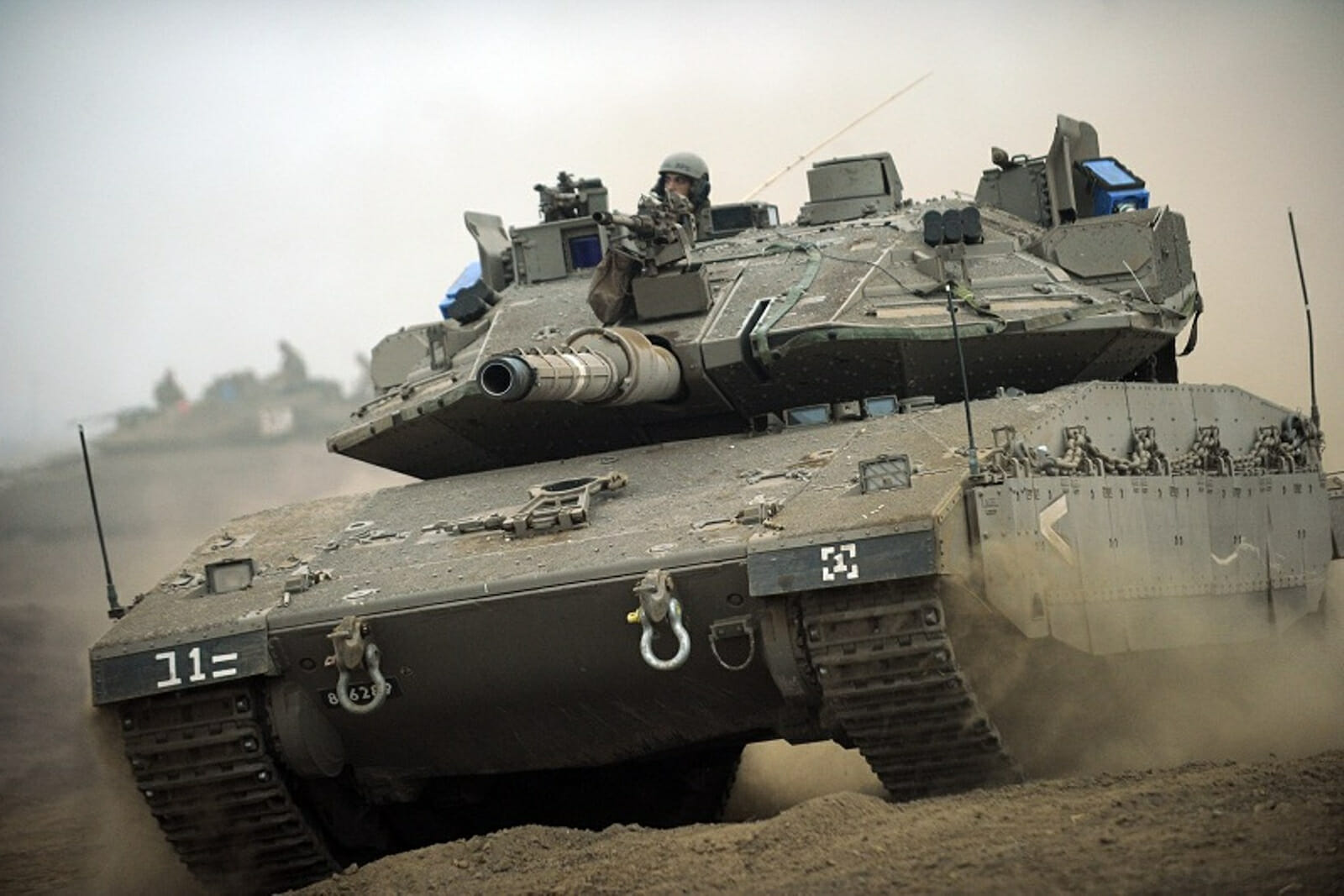
Profiting from Patience: Why Israel Should Not Act Unilaterally Against Iran
“As Prime Minister, I will never gamble with the security of the State of Israel.” – Benjamin Netanyahu, in a speech to AIPAC, March 5, 2012
Even before Israeli Prime Minister Benjamin Netanyahu took the stage at the 2012 AIPAC conference, the crowd of more than 13,000 participants knew what the topic of his speech would be: Iran. Speaking with a passion unmatched by any of the other notable speakers, including US President Barack Obama and Israeli President Shimon Peres, PM Netanyahu used biblical quotes, touching personal stories, and unbridled rhetoric to ensure that those in attendance understood that Israel would no longer stand by as Iran developed a nuclear weapons program.
His speech made it clear that Israel was losing patience with the diplomatic approach that has been favored by President Obama, and that Israel was seriously considering unilateral military action. This threat, credible or not, would not create the stability that PM Netanyahu seeks for his country. On the contrary, unilateral military action by Israel could possibly be the worst course of action available. Iran’s search for nuclear weapons has created a regional and global political environment that is substantially more beneficial to Israel than ever before. Such an environment would no longer exist should Israel pursue pre-emptive military action.
Iran’s nuclear weapon program has caused regional powers such as Saudi Arabia, Iraq, and post-Mubarak Egypt to drift towards a unified position to counter the Iranian threat. While this political separation has not brought the Arab states and Israel together, it has given them a common front from which a fragile, and likely temporary, partnership can be created. Globally, Iran’s actions have brought ire upon the Islamic regime from all corners of the world.
Recently, the UN Security Council passed tougher sanctions against Iran, proving that the once dependable veto power of China and Russia has faded.
Additionally, the increased price of crude oil created by Iran’s nuclear ambition threatens the ability of the US and EU to finally rise out of their economic slump, further distancing the regime from any support it may have previously had in the west.
Therefore, Israel can gain significantly from allowing Iran’s nuclear program to alienate the regional power from any of its significant allies.
Should Israel choose to preemptively attack Iran, they would lose all of this political power, for very little military gain. Currently, there is no evidence that supports that Israel would be able to do more than delay Iran’s nuclear program if the attack succeeded at all. Therefore, weighing the costs and benefits of political and military action and given that Israel and Iran are rational actors, there is no reason that Israel should act unilaterally against Iran.
Assumptions
Before a detailed discussion about the political and military options available to Israel, there are several assumptions that must be made. The first and most obvious assumption is that Iran’s nuclear program is not a benign quest for nuclear power, but that they are secretly trying to acquire a nuclear weapon. Secondly, Iran and Israel must be considered rational actors that weigh second and third order consequences of their actions and choose the option that benefits them most.
Nuclear Iran and the Threat to Israel
To be clear, Israel does have legitimate concerns about a nuclear-capable Iran. These concerns primarily focus on three things: the existential threat of a nuclear Iran, the proliferation of nuclear weapons to terrorist organizations by Iran, and the political influence Iran would gain from a nuclear weapon. The most important issue at hand for Israel, at least for PM Netanyahu, is the existential threat posed by a nuclear-capable Iran. Iranian rhetoric has repeatedly called for the elimination of the Jewish state, and a nuclear weapon would certainly give them the capability to act on that rhetoric. However, there are far too many consequences for Iran for such action to be seriously considered. Israel’s continued development of a three-tiered missile defense system, Iron Dome, poses a formidable shield against any ballistic missile launched from Iran.
Even if a nuclear weapon were detonated on Israeli soil, the consequences for Iran, which would be implicated immediately, would be extremely severe. Israel also has little to fear about the proliferation of nuclear weapons from Iran to Hezbollah, Hamas, and other terrorist groups. Paul Pillar’s recent article in Washington Monthly explains that not only would such an action take power out of Iranian hands, but any attack by these organizations would also immediately be traced back to Iran, which would again suffer greatly. Finally, the political power gained from acquiring a nuclear weapon would not significantly advance Iran’s goal of becoming a regional hegemon.
The idea of massive retaliation, the main source of offensive power that could be derived from a nuclear weapon, was disproven in the Cold War when the US tried the same strategy under President Eisenhower’s “New Look.” Instead, it would likely create either an arms race within the Middle East or a balancing alliance against Iran of previously non-allied states.
Nuclear Iran and the Middle East
Israel would certainly not be the only Middle Eastern state interested in countering a nuclear Iran. Recent months have shown Arab states begin to further distance themselves from Iran towards a partnership that would benefit Israel. Most notable amongst the states seeking a counterbalance against Iran is the Kingdom of Saudi Arabia. Iran poses an almost equally grave danger to Saudi Arabia as it does to Israel.
While the state of Saudi Arabia has no need to fear an existential threat, the revelation of an assassination plot against a Saudi diplomat in Washington D.C., and the allegations that Iran has been supporting Shiite uprisings in Bahrain and Yemen is cause for alarm within the House of Saud.
A nuclear-capable Iran is possibly capable of influencing regional politics to an extent that traditionally Sunni governments could face a threat from their Shiite populations, including the Kingdom. Because of this threat, Saudi Arabia has begun to seek action against Iran that is in line with Israeli intentions. These parallel agendas, while certainly not enough to bring Israel and Saudi Arabia into an alliance, could be beneficial to Israel by providing another state from which political, and if need be, military operations can be conducted against Iran.
Nuclear Iran and the World
The political benefits that Iran is providing Israel do not stop at the regional level. Globally, Iran’s actions have been drawing consternation from several international organizations, and the pressure on Iran has only grown in recent years. Iran’s once dependable allies, Russia and China, have recently signed off on a UN Security Council resolution that will further restrict its economy and isolate Iran from the global economy. The effects of these economic sanctions are beginning to seriously hinder the Iranian economy, causing the Iranian rial to lose 50% of its purchasing power in the last 9 months.
At the same time, the Iranian economy is failing, its actions are threatening to destabilize the fragile progress that the EU and US economies have made in the last year. This can become an advantage for Israel, as countries trying to curb the influence of Iran could be more amenable to tougher economic and diplomatic sanctions proposed by Israel or the US.
Military Consequences of Pre-emptive Action
All of the intricate and fragile political gains that Israel has begun to slowly accumulate would be almost immediately eliminated by a pre-emptive military attack. The negative consequences at every level, both politically and militarily, would be disastrous for Israel. Militarily, it is unlikely that Israel would be able to find and destroy all the aboveground centrifuges that Iran has dispersed throughout the country. That means that any military action would not provide a decisive blow against Iran, but merely slow down the processing of uranium.
However, the strike would not only give Iran an idea of Israel’s weapons capabilities and strike tactics, but it would also certainly incite a counterattack from Iran before the Iron Dome missile defense is fully operational. It is also likely that Hezbollah would begin a rocket campaign from the north, and Hamas may increase operations in the Gaza Strip to open a multi-front conflict that would soon sap Israel’s military strength. Even worse, a pre-emptive strike, especially without US permission, could see Israel standing alone against a conventional Iranian counterattack from Syria.
Political Consequences of Pre-emptive Action
While the military consequences would be severe, the political ramifications would be catastrophic and possibly irreparable. Israel would certainly lose any sort of support in the Arab world, possibly even within Jordan. It would also provide Iran legitimate justification for continuing Iran’s weapons development program and would shift the aggressor status from Iran to Israel. Globally, Israel would draw the ire of many nations whose economies would be ravaged by increased oil prices. It would be significantly more difficult for Israel to find any support in the EU or UN, and diplomatic and economic overtures by Israel would go unheeded. Possibly and most importantly, Israel would likely fall quickly out of favor with the US should it seek unilateral military action against Iran.
A war-weary American public would not likely support significant military intervention in another regional conflict, despite the “special” alliance between Israel and the US. Without the unconditional support of the US, Israel’s hegemony in the Middle East would quickly fade, and so too would its ability to influence international organizations against Iran.
Conclusion
PM Netanyahu’s familial and military background justifies his concerns about the continued existence of Israel. A man who has lost relatives to the Holocaust and fought in numerous wars of survival has every right to be peculiarly afraid of any threat to his country. However, I do not think this line of thinking is in the best interest of Israel overall.
Israel is in the midst of unprecedented regional and global political unity. There is less support for Iran from its neighbors and allies now than there has been in recent history. Israel can utilize this unity and lack of support to make itself the primary counterbalance against Iran. This position would allow Israel more freedom to pursue the strict diplomatic and economic measures against Iran that would have been unfeasible a few years ago.
However, a unilateral military strike against Iran would cause Israel to lose all the political support that it has desperately gained in recent years. Therefore, while I understand PM Netanyahu’s impatience, now is not the time for rousing military speeches. It is the time of political consolidation and unity of international effort. Prime Minister Benjamin Netanyahu is right, he shouldn’t go gambling.
Jacob M. Henry is not a spokesperson, nor does he represent the opinions of the United States Army as a whole.

